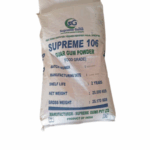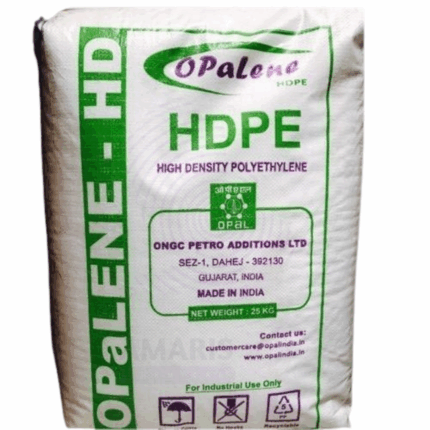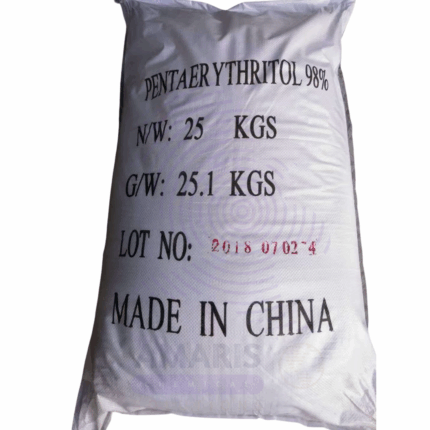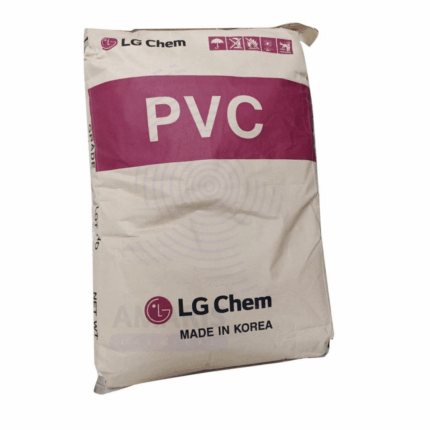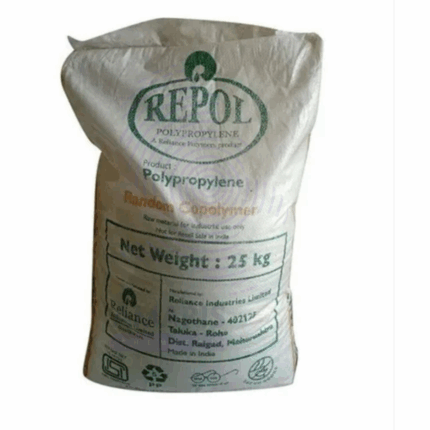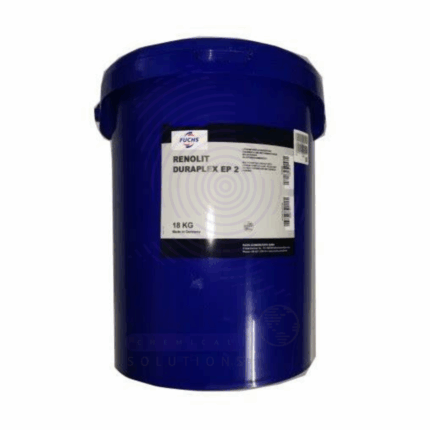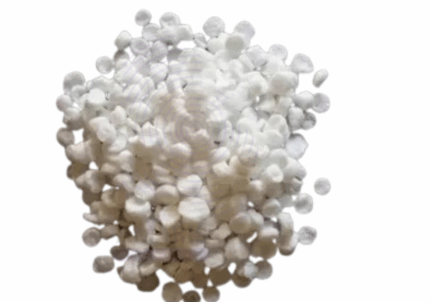HDPE Blow HDB5502
Whatsapp Order
HDPE Blow HDB5502 is a high-density polyethylene resin specifically formulated for blow molding applications. It is a semi-crystalline thermoplastic polymer characterized by excellent strength-to-density ratio, high chemical resistance, and superior processability in blow molding equipment. This grade exhibits high stiffness, good environmental stress crack resistance (ESCR), and excellent impact resistance, making it ideal for manufacturing durable hollow containers and complex-shaped products. The resin is supplied as granular pellets with consistent melt flow and homogeneity, optimized for efficient molding cycles and high throughput.
Description
Table of Contents
Toggle
HDPE Blow HDB5502
Primary Uses
- Blow Molding Applications
- Production of hollow containers and bottles for packaging liquids such as water, milk, juice, and soft drinks.
- Manufacturing of chemical drums, jerry cans, and large storage tanks resistant to corrosion and impact.
- Used in the fabrication of automotive fluid reservoirs, fuel tanks, and detergent containers.
- Ideal for industrial packaging requiring toughness and chemical resistance.
- Production of household containers including cleaning products, shampoos, and cosmetic bottles.
- Food Packaging Industry
- Suitable for manufacturing food-grade containers that comply with FDA and other global food safety regulations.
- Used for edible oil bottles, milk jugs, and juice containers ensuring product safety and shelf life.
- Agricultural Sector
- Fabrication of pesticide containers, fertilizer bottles, and other chemical-resistant packaging.
- Used in water and liquid fertilizer tanks for farming applications.
- Chemical Industry
- Production of containers and drums for corrosive chemicals, solvents, and industrial liquids.
- Provides superior barrier properties and mechanical strength for safe transportation and storage.
Secondary Uses
- Consumer Goods
- Production of toys and sporting goods that require durability and impact resistance.
- Used in reusable water bottles and household utility containers.
- Construction Industry
- Fabrication of plastic parts and components for plumbing, conduits, and protective covers.
- Recycling and Sustainability Initiatives
- HDPE Blow HDB5502 is widely recyclable and can be reprocessed into new products, supporting circular economy efforts.
- Miscellaneous
- Used in medical device components where chemical inertness and strength are required.
- Employed in industrial applications requiring light-weight, impact-resistant plastic parts.
KEY PRODUCT FEATURES
1. Basic Identification Attributes
- Chemical Name (IUPAC): Polyethylene, high-density (HDPE)
- Common/Trade Name: HDPE Blow HDB5502
- CAS Number: 9002-88-4
- HS Code: 3901.20.00
- Polymer Type: High-density polyethylene (HDPE)
- Synonyms: Polyethylene blow molding resin; HDPE Blow Grade
2. Physical & Chemical Properties
- Physical State: Granular pellets
- Color & Odor: Natural (usually translucent/white); odorless
- Density: ~0.945 g/cm³
- Melt Flow Index (MFI): Typically 0.3–0.6 g/10 min (specific to HDB5502 grade)
- Melting Point: Approx. 130°C
- Tensile Strength: High, typically >20 MPa
- Environmental Stress Crack Resistance: Excellent
- Chemical Resistance: Resistant to acids, bases, solvents, and hydrocarbons
- UV Resistance: Moderate; can be enhanced with additives
3. Safety & Hazard Attributes
- GHS Classification: Not classified as hazardous
- Toxicity: Non-toxic and safe for food contact (compliant grades)
- Handling: Non-irritant, no special hazards under normal handling
4. Storage & Handling Attributes
- Container Type: Supplied in bulk bags, boxes, or drums
- Storage Conditions: Store in dry, cool environment away from direct sunlight and moisture
- Shelf Life: 2–3 years when stored properly
- Handling Notes: Minimize dust generation; use dust masks if necessary
5. Regulatory & Compliance Attributes
- FDA, EFSA approved for food contact use (depending on specific batch certification)
- Compliant with EU Regulation No. 10/2011 for plastic materials in contact with food
- RoHS and REACH compliant
6. Environmental & Health Impact
- Biodegradability: Non-biodegradable but recyclable
- Recycling: Widely accepted in plastic recycling streams (recycled into pipes, containers, plastic lumber)
- Ecotoxicity: Low; inert in environment
- Carcinogenicity/Mutagenicity: Not classified
SAFETY HANDLING PRECAUTIONS
Safety Handling Precautions
- PPE Required: Gloves, safety goggles, dust masks when handling powders/dust
- Handling Guidelines: Avoid dust inhalation; use in well-ventilated areas
- Hygiene Practices: Wash hands after handling; avoid ingestion and eye contact
First Aid Measures
- Inhalation: Remove to fresh air if irritation occurs
- Skin Contact: Wash with soap and water
- Eye Contact: Flush with plenty of water for 15 minutes; seek medical attention if irritation persists
- Ingestion: Not harmful; rinse mouth and seek medical attention if discomfort arises
Firefighting Measures
- Fire Hazards: Combustible solid; produces dense black smoke on burning
- Extinguishing Media: Water spray, foam, dry chemical, or CO₂
- Combustion Products: Carbon monoxide, carbon dioxide, hydrocarbons
- Firefighter PPE: Use self-contained breathing apparatus and protective clothing
Related products
HDPE Film F52H04
HDPE Film F52H04 Opalene is a high-density polyethylene film grade resin specially engineered for producing thin, flexible, and high-strength films. It is designed for blown film extrusion processes, delivering excellent mechanical properties, superior clarity (opal/opalene finish), and consistent gauge control. This resin offers high tensile strength, good puncture resistance, and excellent moisture barrier properties, making it ideal for packaging applications requiring durability and flexibility. Its balanced processing characteristics enable fast extrusion rates and uniform film thickness.
Pentaerythritol
Pentaerythritol is a high-purity, crystalline polyol used extensively in the production of alkyd resins, synthetic lubricants, explosives, and plasticizers. Its multifunctional alcohol structure provides excellent stability, high melting point, and good compatibility with various chemicals. Pentaerythritol 98% is valued for its role as a building block in chemical syntheses, offering enhanced durability, flexibility, and resistance in end products.
Polyvinyl Chloride Resin 702
Polyvinyl Chloride Resin 702 is a high molecular weight, suspension-grade polyvinyl chloride resin with a K-value around 70–72. It is specifically formulated for use in soft and flexible PVC products due to its excellent plasticizer absorption and high mechanical strength. Its superior elongation, thermal stability, and processability make it highly suitable for calendaring, extrusion, injection molding, and dip molding operations. PVC Resin 702 is extensively used across the cable, synthetic leather, film, and footwear industries.
Polyvinyl Chloride Tubing
Polyvinyl Chloride Tubing is a flexible, durable tube made from polyvinyl chloride (PVC), commonly used in laboratories for the safe and efficient transfer of gases, liquids, and chemicals. It features excellent chemical resistance, good mechanical strength, and flexibility, making it ideal for a wide range of laboratory applications including fluid transfer, vacuum lines, and connection of various lab apparatus. PVC Tubing is transparent or translucent to allow visual monitoring of fluid flow and is resistant to abrasion, corrosion, and weathering. It is available in various diameters and thicknesses to suit different laboratory requirements.
PP Copolymer 37MK10
PP Copolymer 37MK10 is a polypropylene copolymer resin characterized by enhanced clarity, impact resistance, and flexibility compared to homopolymer polypropylene. This copolymer combines propylene with a small percentage of ethylene, resulting in improved toughness and processability. It is widely used in injection molding, extrusion, and film applications across various industries, offering excellent chemical resistance and durability.
PP Raffia 1003
PP Raffia 1003 is a polypropylene homopolymer resin commonly used for manufacturing raffia fibers and woven sacks. It offers high tensile strength, excellent dimensional stability, and good resistance to chemicals and environmental stress. This grade is ideal for producing durable woven fabrics used in packaging, agriculture, and construction applications.
Renolit Duraplex EP 2, 3
Renolit Duraplex EP 2 and EP 3 are high-performance extreme pressure (EP) lithium-based grease lubricants designed for heavy-duty industrial and automotive applications. These greases provide excellent mechanical stability, water resistance, and protection against wear and corrosion under high load and temperature conditions. Formulated with high-quality base oils and additives, Renolit Duraplex EP greases ensure long service intervals and reliable operation of bearings, joints, and other moving components.
Styrene Polymer Copolymer
Styrene Polymer Copolymer is a high-performance copolymer consisting primarily of styrene combined with other monomers such as acrylonitrile or butadiene, designed to offer enhanced mechanical properties, chemical resistance, and processability. Supplied in bulk packaging of 230kg, it is widely used in plastics, adhesives, coatings, and rubber industries. This copolymer provides excellent toughness, thermal stability, and versatility, making it suitable for demanding industrial applications.


 Preservatives(food)
Preservatives(food) Flavor Enhancers
Flavor Enhancers Acidulants
Acidulants Sweeteners
Sweeteners Antioxidants
Antioxidants Colorants(food)
Colorants(food) Nutraceutical Ingredients (food)
Nutraceutical Ingredients (food) Nutrient Supplements
Nutrient Supplements Emulsifiers
Emulsifiers
 Collectors
Collectors Dust Suppressants
Dust Suppressants Explosives and Blasting Agents
Explosives and Blasting Agents Flocculants and Coagulants
Flocculants and Coagulants Frothers
Frothers Leaching Agents
Leaching Agents pH Modifiers
pH Modifiers Precious Metal Extraction Agents
Precious Metal Extraction Agents
 Antioxidants(plastic)
Antioxidants(plastic) Colorants (Pigments, Dyes)
Colorants (Pigments, Dyes) Fillers and Reinforcements
Fillers and Reinforcements Flame Retardants
Flame Retardants Monomers
Monomers Plasticizers
Plasticizers Polymerization Initiators
Polymerization Initiators Stabilizers (UV, Heat)
Stabilizers (UV, Heat)
 Antifoaming Agents
Antifoaming Agents Chelating Agents
Chelating Agents Coagulants and Flocculants
Coagulants and Flocculants Corrosion Inhibitors
Corrosion Inhibitors Disinfectants and Biocides
Disinfectants and Biocides Oxidizing Agents
Oxidizing Agents pH Adjusters
pH Adjusters Scale Inhibitors( water)
Scale Inhibitors( water)
 Antioxidants(cosmetic)
Antioxidants(cosmetic) Emollients
Emollients Fragrances and Essential Oils
Fragrances and Essential Oils Humectants
Humectants Preservatives
Preservatives Surfactants(cosmetic)
Surfactants(cosmetic) Thickeners
Thickeners UV Filters
UV Filters
 Fertilizers
Fertilizers Soil Conditioners
Soil Conditioners Plant Growth Regulators
Plant Growth Regulators Animal Feed Additives
Animal Feed Additives Biostimulants
Biostimulants Pesticides (Herbicides, Insecticides, Fungicides)
Pesticides (Herbicides, Insecticides, Fungicides)
 Active Pharmaceutical Ingredients (APIs)
Active Pharmaceutical Ingredients (APIs) Excipients
Excipients Solvents(pharmaceutical)
Solvents(pharmaceutical) Antibiotics
Antibiotics Antiseptics and Disinfectants
Antiseptics and Disinfectants Vaccine Adjuvants
Vaccine Adjuvants Nutraceutical Ingredients (pharmaceutical)
Nutraceutical Ingredients (pharmaceutical) Analgesics & Antipyretics
Analgesics & Antipyretics
 Analytical Reagents
Analytical Reagents Solvents(lab)
Solvents(lab) Chromatography Chemicals
Chromatography Chemicals Spectroscopy Reagents
Spectroscopy Reagents microbiology-and-cell-culture-reagents
microbiology-and-cell-culture-reagents Molecular Biology Reagents
Molecular Biology Reagents Biochemical Reagents
Biochemical Reagents Inorganic and Organic Standards
Inorganic and Organic Standards Laboratory Safety Chemicals
Laboratory Safety Chemicals Specialty Laboratory Chemicals(Special Laboratory Equipment)
Specialty Laboratory Chemicals(Special Laboratory Equipment)
 Demulsifiers
Demulsifiers Hydraulic Fracturing Fluids
Hydraulic Fracturing Fluids Scale Inhibitors(oil)
Scale Inhibitors(oil) Surfactants(oil)
Surfactants(oil) Drilling Fluids
Drilling Fluids
 Dyes and Pigments
Dyes and Pigments Bleaching Agents
Bleaching Agents Softening Agents
Softening Agents Finishing Agents
Finishing Agents Antistatic Agents
Antistatic Agents
 Admixtures
Admixtures Waterproofing Agents
Waterproofing Agents Sealants and Adhesives
Sealants and Adhesives Curing Compounds
Curing Compounds Concrete Repair Chemicals
Concrete Repair Chemicals Anti-Corrosion Coatings
Anti-Corrosion Coatings
 Surfactants(cleaning)
Surfactants(cleaning) Builders
Builders Enzymes
Enzymes Solvents (Cleaning)
Solvents (Cleaning) Fragrances
Fragrances
 Electronic Chemicals
Electronic Chemicals Catalysts
Catalysts Lubricants
Lubricants Photographic Chemicals
Photographic Chemicals Refrigerants
Refrigerants Automotive chemicals
Automotive chemicals Pyrotechnic Chemicals
Pyrotechnic Chemicals
 Biodegradable Surfactants
Biodegradable Surfactants Bio-based Solvents
Bio-based Solvents Renewable Polymers
Renewable Polymers Carbon Capture Chemicals
Carbon Capture Chemicals Wastewater Treatment Chemicals
Wastewater Treatment Chemicals
 Pigments
Pigments Solvents(paint)
Solvents(paint) Specialty Coatings
Specialty Coatings Binders/Resins
Binders/Resins Additives
Additives Driers
Driers Anti-Corrosion Agents
Anti-Corrosion Agents Functional Coatings
Functional Coatings Application-Specific Coatings
Application-Specific Coatings
 Leavening Agents
Leavening Agents Dough Conditioners
Dough Conditioners Flour Treatments
Flour Treatments Fat Replacers
Fat Replacers Decoratives
Decoratives Preservatives(baking)
Preservatives(baking)
 Plasticizers & Softeners
Plasticizers & Softeners Reinforcing Agents
Reinforcing Agents Adhesion Promoters
Adhesion Promoters Vulcanizing Agents
Vulcanizing Agents Antidegradants
Antidegradants Blowing Agents
Blowing Agents Fillers & Extenders
Fillers & Extenders Accelerators & Retarders
Accelerators & Retarders
